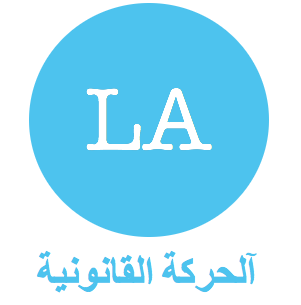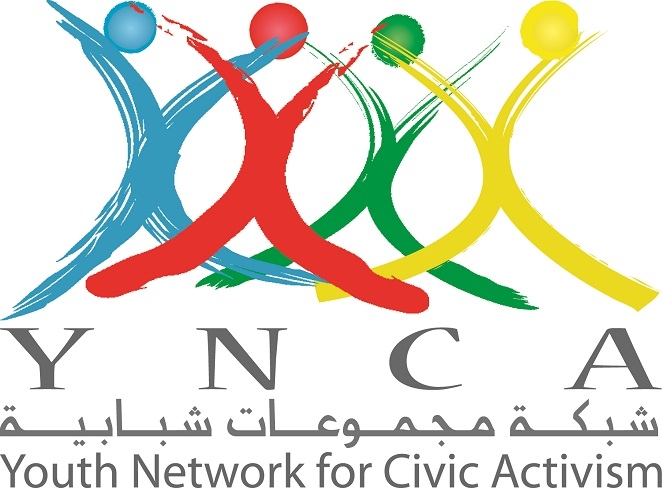
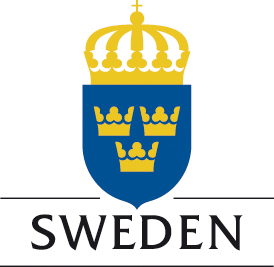

Issue 13, November 2018- العدد رقم ١٣، تشرين الثاني ٢٠١٨
About the newsletter
Why the Gender Equity Newsletter?
This newsletter aims to connect gender actors and practitioners in Lebanon through the exchange of expertise, in an attempt to create a space for better collaboration, networking, and equl access to knowledge, research, and information. Issues cover the work of actors, their activities, and projects, in addition to recommending relevant resources and tools, as well as information and statistics relevant to gender work in Lebanon.
The gender equity newsletter is a part of the Gender Equity Network, a project by Lebanon Support in partnership with Diakonia
The Gender Equity Network is an online collaborative platform. It is part of Lebanon Support’s Civil Society Knowledge Centre (CSKC) and brings together civil society organisations, researchers, practitioners, and experts to enhance local and national capacities, improve access to knowledge and its development, and provide evidence-based research, information, and literature on gender issues and concerns.
1. Featured resources on the Gender Equity Network
By: Lebanon Support
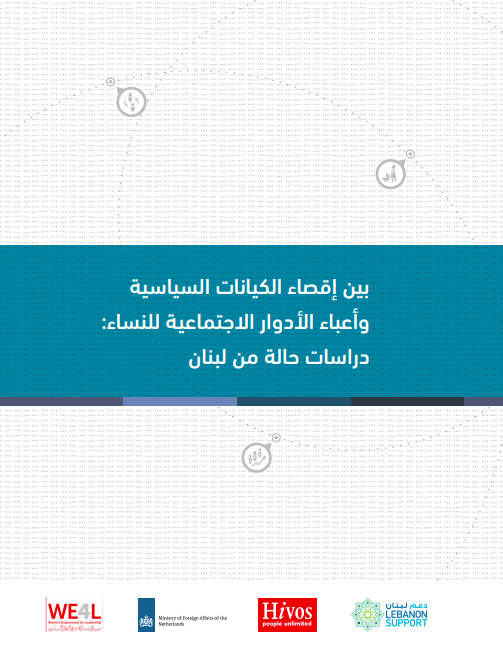
This report seeks to understand and analyse women’s access to leadership positions in four organisational structures in Lebanon: a political party, a syndicate union, a civil society organisation, and a social movement. It aims to investigate the specific institutional procedures that constrain women in their political participation, as well as the internal dynamics, conveyed in practices and discourses, that women navigate.
This report is available in Arabic (and soon in English) on this link, and is published as part of the “Women Empowered for Leadership” project, in partnership with Hivos International.
Barriers hindering women's full political participation in Lebanon
By: Lebanon Support
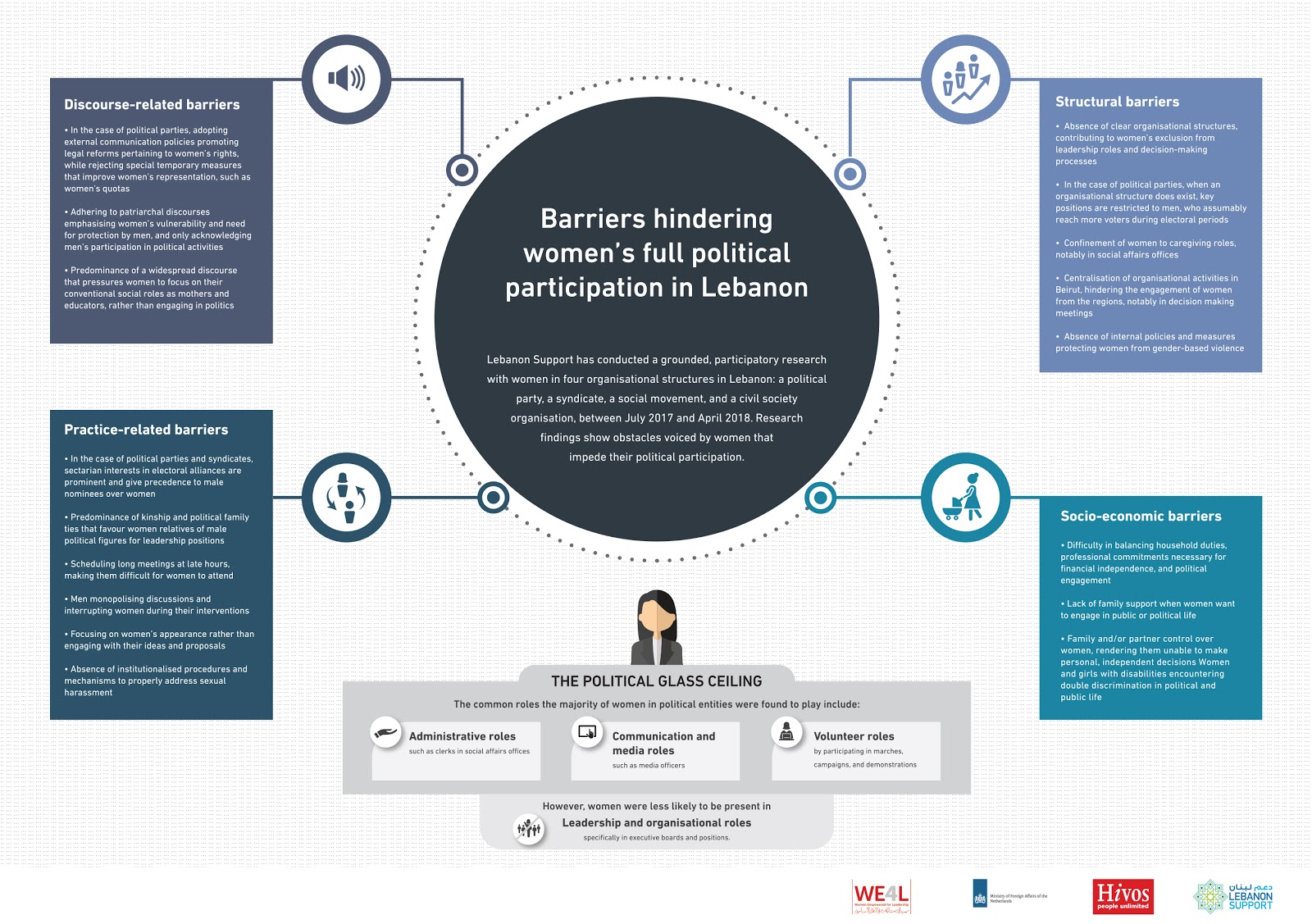
This qualitative infographic illustrates the main findings of the “Women's Political Participation: Exclusion and Reproduction of Social Roles. Case Studies from Lebanon” report, in an attempt to make research findings more accessible to civil society actors, policymakers, activists, and the general public. It showcases the four main barriers hindering women’s full political participation in Lebanon, and the political glass ceiling.
It is available in English and Arabic in high resolution, on this link.
2. Events Lebanon Support organised
Workshop on gender mainstreaming
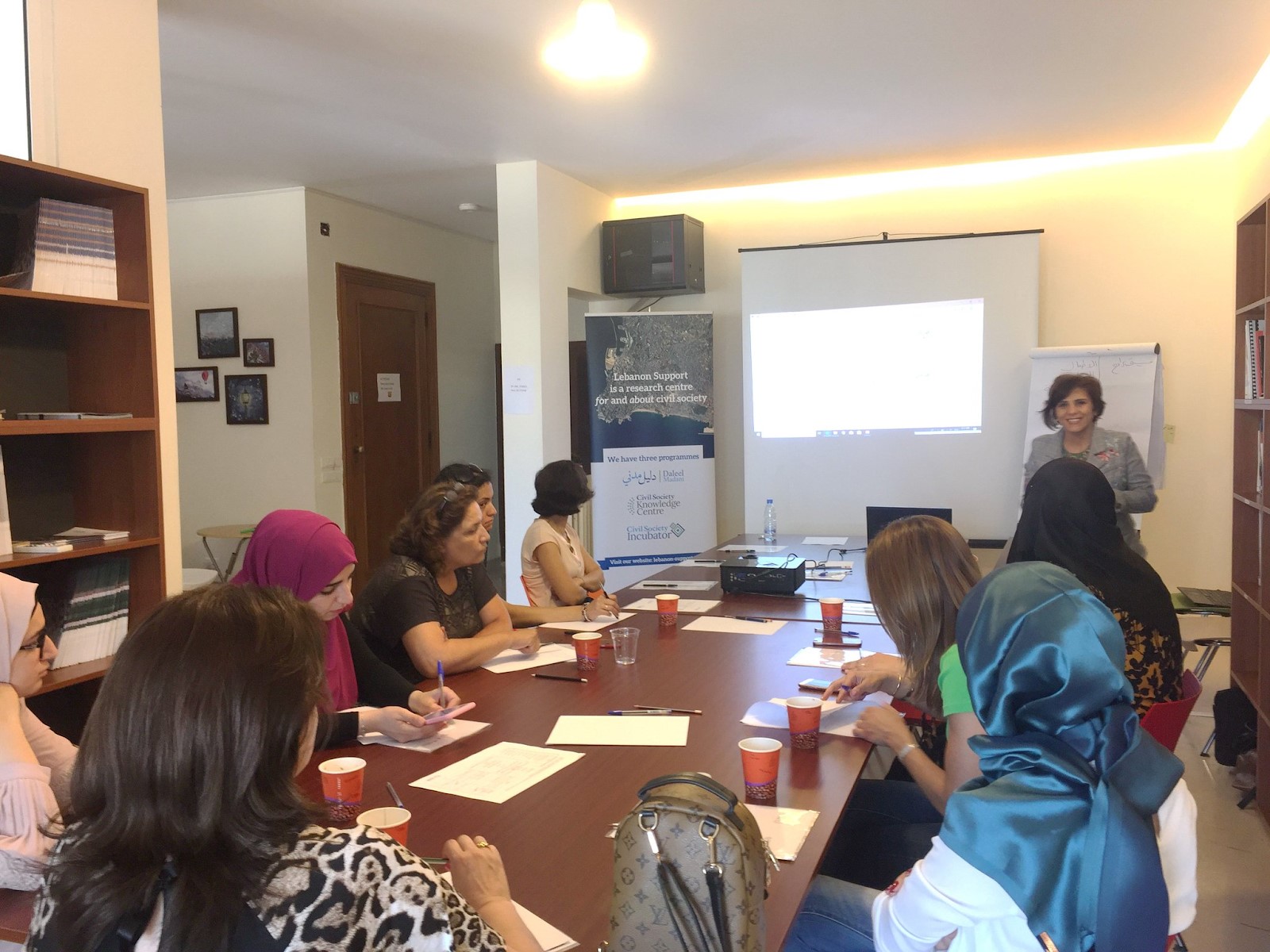
Lebanon Support, based on its publication A Practical Guide for Civil Society Organisations in Lebanon towards Gender Mainstreaming which aims at helping local civil society organisations in adopting it, organised a two-day workshop on 4 and 5 July. The closed workshop, organised in partnership with Diakonia, was attended by various local organisations that are partners of Diakonia: Dar Al Amal, Lebanese Labor Watch, Arab NGO Network for Development (ANND), Arcenciel, Najdeh Association, the Lebanese Women Democratic Gathering (RDFL), and NABAA. It included a number of sessions that sought to set gender concepts and terms based on the steps published in A Practical Guide for Civil Society Organisations in Lebanon towards Gender Mainstreaming, ranging from the analysis of the internal and external contexts of organisations’ work, to the identification of gender mainstreaming levels, whether at the organisational level or at the programmes and activities level.
The full summary is available here.
Gender Afterworks- Not Third-Class Citizens: Citizenship rights for Women in Lebanon

On November 16th, 2018, Lebanon Support in collaboration with the Collective for Research and Training Development - Action (CRTD.A), and in partnership with Diakonia, hosted its fourth Gender Afterworks on women citizenship rights in Lebanon at antwork (Hamra). The discussion was led by Maitre Marie-Rose Zalzal a lawyer, lecturer at Université Saint-Joseph, and activist, and Lina Abou Habib executive director at CRTD.A. It was moderated by lawyer and human rights activist, Manar Zaiter.
The full summary of the event is available here.
3. FOCUS ON
New Gender Groups on Daleel Madani
DM Groups provide an online collaborative space for discussion, concerted action, and planning of campaigns and collaborations, and aim to bring together civil society actors around specific thematic issues. This tool is in line with the Daleel Madani’s mission to strengthen civil society capacity, knowledge exchange, and partnerships among civil society actors.
- What is the DM Gender Group?
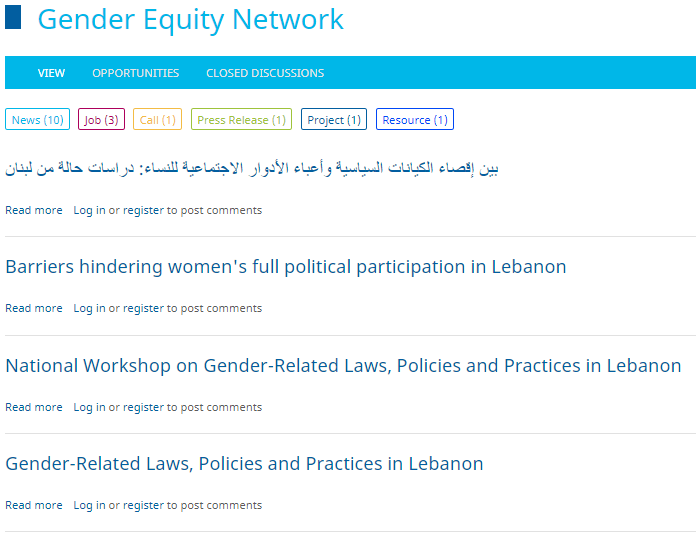
The DM Gender Group features updates relevant to gender issues in Lebanon, in addition to a space for discussion, collaboration, and concerted action. It currently comprises:
- Newsfeed: this section includes aggregated professional opportunities, calls, research and analysis, news, events, and projects in the field of gender.
- Opportunities: this section includes aggregated jobs and calls (for funding, for consultants, for participation to events and workshops, among others) in the field of Gender.
- Discussions: this section includes open and closed discussions on issues relevant to gender.
4. Newest gender organisations registered on Daleel Madani
Legal Action:
View their profile on Daleel Madani here.
Legal Action (LA) is a Lebanese non-profit organisation comprised of human rights lawyers focused on identifying creative avenues for accessing justice for those who are experiencing protracted violations of their human rights.
Youth Network for Civic Activism:
View their profile on Daleel Madani here.
Youth Network for Civic Activism (YNCA) is a civil society organisation working on advocacy and awareness for issues related to children & youth, conflict resolution, gender and human rights & protection. One of the main initiatives of the YNCA include the creation of ‘safe spaces’ for vulnerable women and girls.
5. Gender news
- From Lebanon
- On October 1, the Internal Security Forces launched a hotline (1745) for victims of domestic abuse to report their cases and to receive support. Within two weeks of its launch, the hotline had received four domestic violence complaints.
- The Lebanese delegation to an international parliamentary conference in Geneva, led by Speaker Nabih Berri, voted on October 18 against a bill which called for LGBT rights to be respected worldwide. Worryingly, this vote reflects a growing pattern of crackdown on LGBT activism by Lebanese authorities in recent months.
- On October 31, the Gender and Sexuality Club at the American University of Beirut (AUB) was forced to cancel its Halloween themed queer speed dating/mixer night after former Grand Mufti of Lebanon, Sheikh Qabbani, and other Sunni religious authorities accused the club of “promoting immorality,” referred to it as “sex club,” and called for its prohibition.
- Data released by General Security, and published by Human Rights Watch, on October 30 revealed that only 21,796 noncitizen children and spouses of Lebanese women obtained legal residency in 2017. This modest figure undermines political discourse which claims that introducing equal nationality laws would endanger Lebanon’s delicate sectarian balance.
- On a relevant note, campaigns to reform Lebanon’s discriminatory nationality law, which denies Lebanese women the right to pass down citizenship to their children, have picked up momentum over the past months .On November 12, protestors in Beirut gathered outside the Parliament building while a legislative session was taking place in order to demand that Parliament endorse two bills relating to women’s nationality rights. These protests were organised by the ‘My Nationality Is My Dignity’ campaign. This comes after the Progressive Socialist Party parliamentary bloc put forth a draft legislation in August, that would give women the right to pass their citizenship onto both their children and non-Lebanese husbands, and a proposal by the Future Movement parliamentary bloc on October 16, which would allow Lebanese women to confer nationality to their children.
- Around the world
- In August, Tunisia’s president proposed putting forth a bill to parliament that would grant women and men equal inheritance rights. Currently, Tunisia’s inheritance law is derived from Islamic inheritance laws, where women receive half of what men are entitled to.
- Tara Fares, an Iraqi social media star, was shot dead in Baghdad on September 27 by unknown gunmen. She was the latest victim in a spate of attacks targeting women across the country, which included the prominent women’s right activist, Soad al-Ali, who was killed by gunmen in Basra in the same week.
- In October, gender studies was removed from the list of university subjects in Hungary, following a government decree signed by the prime minister. The ban on gender studies is seen as an extension of the government’s socially conservative policies, which advocate traditional gender roles.
- On October 16, lawmakers in Ethiopia unanimously approved the appointment of a record number of women to the Cabinet. Ethiopia’s new Cabinet is now 50 percent female, with women holding the positions of President and Defense Minister for the first time in the country’s history.
- In November, the U.S midterm elections saw a record number of 120 women being elected into Congress. This includes the youngest women to ever serve in Congress (29-year-olds Alexandria Ocasio-Cortez and Abby Finkenauer), as well as the first two Native American women, and the first two Muslim women, Palestinian-American Rashida Tlaib and Somali-American Ilhan Omar.











